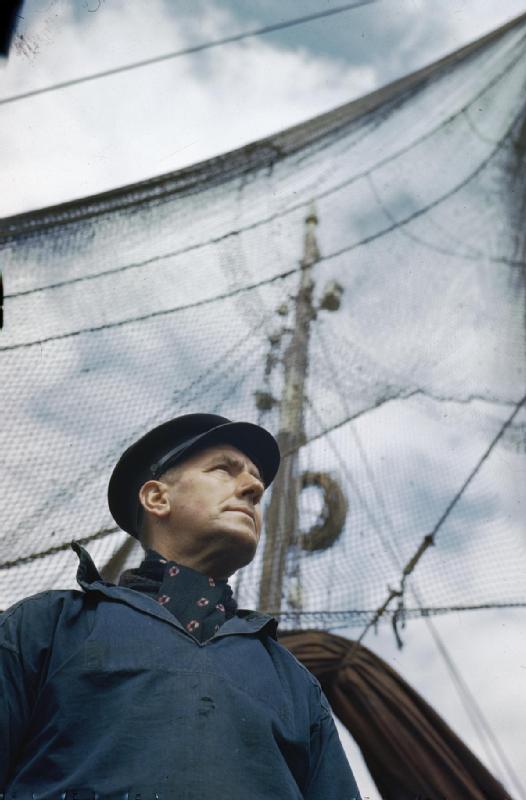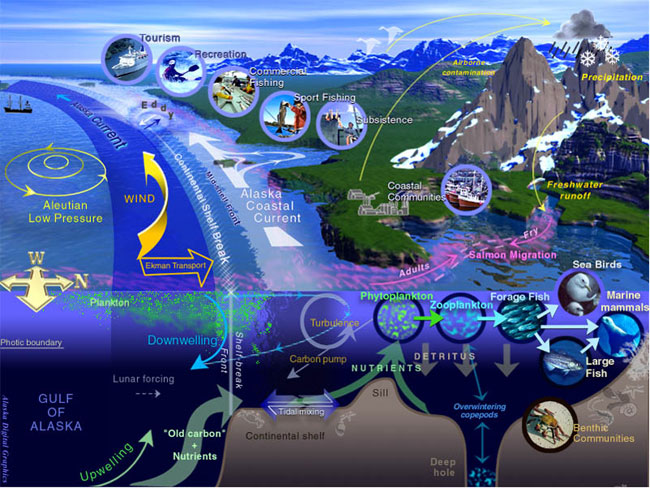|
Oyorokoto
Oyorokoto is a fishing settlement located on Andoni Island in Andoni Local Government Area of Rivers State, Nigeria, and is often referred to as the largest fishing settlement in West Africa sub region. Oyorokoto is an emerging tourists destination in Rivers State, and home to many endangered species. Different species of sea turtle and dolphin are often by-caught by fishermen here. A large dolphin which attracted the attention of both local and international conservation groups was caught by a fisherman at Oyorokoto in the year 2020. Tourists attraction The Nigerian Conservation Foundation in collaboration with an indigenous non-governmental organization, Save Andoni Forest Elephants Initiative (Safe-i), have started the process of sensitization and awareness campaign among fishermen in Oyorokoto to preserve endangered marine species in Andoni Local Government Area. Oyorokoto also part of the proposed Andoni Elephant Park and Marine national park Oyorokoto Atlantic b ... [...More Info...] [...Related Items...] OR: [Wikipedia] [Google] [Baidu] |
List Of Sovereign States
The following is a list providing an overview of sovereign states around the world with information on their status and recognition of their sovereignty. The 206 listed states can be divided into three categories based on membership within the United Nations System: 193 member states of the United Nations, UN member states, 2 United Nations General Assembly observers#Present non-member observers, UN General Assembly non-member observer states, and 11 other states. The ''sovereignty dispute'' column indicates states having undisputed sovereignty (188 states, of which there are 187 UN member states and 1 UN General Assembly non-member observer state), states having disputed sovereignty (16 states, of which there are 6 UN member states, 1 UN General Assembly non-member observer state, and 9 de facto states), and states having a political status of the Cook Islands and Niue, special political status (2 states, both in associated state, free association with New Zealand). Compi ... [...More Info...] [...Related Items...] OR: [Wikipedia] [Google] [Baidu] |
Fisherman
A fisher or fisherman is someone who captures fish and other animals from a body of water, or gathers shellfish. Worldwide, there are about 38 million commercial and subsistence fishers and fish farmers. Fishers may be professional or recreational. Fishing has existed as a means of obtaining food since the Mesolithic period.Profile for the USA * inadequate preparation for emergencies * poor vessel maintenance and inadequate safety equipment * lack of awareness of or ignoring stability issues. Many fishers, while accepting that fishing is dangerous, staunchly defend their independence. Many proposed laws and additional regulation to increase safety have been defeated because fishers oppose them. Alaska's commercial fishers work in one of the world's harshest environments. Many of the hardships they endure include isolated fishing grounds, high winds, seasonal darkness, very cold water, icing, and short fishing seasons, where very long work days are the norm. Fatigue, physical ... [...More Info...] [...Related Items...] OR: [Wikipedia] [Google] [Baidu] |
Beach
A beach is a landform alongside a body of water which consists of loose particles. The particles composing a beach are typically made from rock, such as sand, gravel, shingle, pebbles, etc., or biological sources, such as mollusc shells or coralline algae. Sediments settle in different densities and structures, depending on the local wave action and weather, creating different textures, colors and gradients or layers of material. Though some beaches form on inland freshwater locations such as lakes and rivers, most beaches are in coastal areas where wave or current action deposits and reworks sediments. Erosion and changing of beach geologies happens through natural processes, like wave action and extreme weather events. Where wind conditions are correct, beaches can be backed by coastal dunes which offer protection and regeneration for the beach. However, these natural forces have become more extreme due to climate change, permanently altering beaches at ver ... [...More Info...] [...Related Items...] OR: [Wikipedia] [Google] [Baidu] |
Andoni Elephant Park
Andoni Elephant Park or Andoni Elephant Sanctuary is a community forest located on the picturesque Andoni Island, one of the world's most biodiverse Barrier island. The reserve was officially gazetted by the then Government of Rivers State under Chief Melford Okilo administration in 1983. The island Andoni is in the southern part of Rivers State in Nigeria's oil-rich Niger Delta, measuring about 124 square kilometres is consist of three ecological zones; Freshwater swamp forest, Tidal flat which comprised, estuaries, mangrove and creeks, and Atlantic Beach According to United Nations Development Programme's Niger Delta Biodiversity Project Report 2012, Andoni Island, though relatively small in size compared to List of national parks of Nigeria, represent some of the last remaining pristine natural resources, home to some Nigeria's endemic or near endemic mammals species on IUCN Red List mammals. Some of the wildlife that are residents in the park includes; African forest elephant, py ... [...More Info...] [...Related Items...] OR: [Wikipedia] [Google] [Baidu] |
Local Government Area
A local government area (LGA) is an administrative division of a country that a local government is responsible for. The size of an LGA varies by country but it is generally a subdivision of a state, province, division, or territory. The phrase is used as a generalised description in the United Kingdom to refer to a variety of political divisions such as boroughs, counties, unitary authorities and cities, all of which have a council or similar body exercising a degree of self-government. Each of the United Kingdom's four constituent countries has its own structure of local government, for example Northern Ireland has local districts; many parts of England have non-metropolitan counties consisting of rural districts; London and many other urban areas have boroughs; there are three islands councils off the coast of Scotland; while the rest of Scotland and all of Wales are divided into unitary authority counties, some of which are officially designated as cities. As such the term loca ... [...More Info...] [...Related Items...] OR: [Wikipedia] [Google] [Baidu] |
Marine Life
Marine life, sea life, or ocean life is the plants, animals and other organisms that live in the salt water of seas or oceans, or the brackish water of coastal estuaries. At a fundamental level, marine life affects the nature of the planet. Marine organisms, mostly microorganisms, produce oxygen and sequester carbon. Marine life in part shape and protect shorelines, and some marine organisms even help create new land (e.g. coral building reefs). Most life forms evolved initially in marine habitats. By volume, oceans provide about 90% of the living space on the planet. The earliest vertebrates appeared in the form of fish, which live exclusively in water. Some of these evolved into amphibians, which spend portions of their lives in water and portions on land. One group of amphibians evolved into reptiles and mammals and a few subsets of each returned to the ocean as sea snakes, sea turtles, seals, manatees, and whales. Plant forms such as kelp and other algae grow ... [...More Info...] [...Related Items...] OR: [Wikipedia] [Google] [Baidu] |
Sensitization
Sensitization is a non-associative learning process in which repeated administration of a stimulus results in the progressive amplification of a response. Sensitization often is characterized by an enhancement of response to a whole class of stimuli in addition to the one that is repeated. For example, repetition of a painful stimulus may make one more responsive to a loud noise. History Eric Kandel was one of the first to study the neural basis of sensitization, conducting experiments in the 1960s and 1970s on the gill withdrawal reflex of the seaslug '' Aplysia''. Kandel and his colleagues first habituated the reflex, weakening the response by repeatedly touching the animal's siphon. They then paired noxious electrical stimulus to the tail with a touch to the siphon, causing the gill withdrawal response to reappear. After this sensitization, a light touch to the siphon alone produced a strong gill withdrawal response, and this sensitization effect lasted for several days. (Af ... [...More Info...] [...Related Items...] OR: [Wikipedia] [Google] [Baidu] |
Save Andoni Forest Elephants Initiative
Save, SAVE, or Saved may refer to: Places *Save (Garonne), a river in southern France *Save River (Africa), a river in Zimbabwe and Mozambique *Sava, a river in Eastern Europe also known as Save *Savè, Benin, a commune and city * Save, Govuro District, Mozambique, a posto in Govuro District, Mozambique * Save, Machaze District, Mozambique, a posto and locality in Machaze District, Mozambique *Save, Rwanda, a settlement *Säve, a locality in Göteborg Municipality, Västra Götaland County, Sweden **Säve Airport * Esquel Airport (ICAO airport code: SAVE; IATA airport code: EQS), Esquel, Chubut Province, Argentina Organizations, groups, companies *Society Against Violence in Education, a non-profit organization working against ragging in India *Save Britain's Heritage (''SAVE''), a historic building conservation group in the United Kingdom *Spirit Airlines (NASDAQ stockticker: SAVE), a U.S. airline In technology *Saved game, saved progress of a player in a video game *Computer ... [...More Info...] [...Related Items...] OR: [Wikipedia] [Google] [Baidu] |
Organization
An organization or organisation (Commonwealth English; see spelling differences), is an entity—such as a company, an institution, or an association—comprising one or more people and having a particular purpose. The word is derived from the Greek word ''organon'', which means tool or instrument, musical instrument, and organ. Types There are a variety of legal types of organizations, including corporations, governments, non-governmental organizations, political organizations, international organizations, armed forces, charities, not-for-profit corporations, partnerships, cooperatives, and educational institutions, etc. A hybrid organization is a body that operates in both the public sector and the private sector simultaneously, fulfilling public duties and developing commercial market activities. A voluntary association is an organization consisting of volunteers. Such organizations may be able to operate without legal formalities, depending on jurisdiction ... [...More Info...] [...Related Items...] OR: [Wikipedia] [Google] [Baidu] |
Non-governmental Organization
A non-governmental organization (NGO) or non-governmental organisation (see American and British English spelling differences#-ise, -ize (-isation, -ization), spelling differences) is an organization that generally is formed independent from government. They are typically nonprofit organization, nonprofit entities, and many of them are active in humanitarianism or the social sciences; they can also include club (organization), clubs and voluntary association, associations that provide services to their members and others. Surveys indicate that NGOs have a high degree of public trust, which can make them a useful proxy for the concerns of society and stakeholders. However, NGOs can also be lobby groups for corporations, such as the World Economic Forum. NGOs are distinguished from International organization, international and intergovernmental organizations (''IOs'') in that the latter are more directly involved with sovereign states and their governments. The term as it is used ... [...More Info...] [...Related Items...] OR: [Wikipedia] [Google] [Baidu] |
Indigenous Peoples
Indigenous peoples are culturally distinct ethnic groups whose members are directly descended from the earliest known inhabitants of a particular geographic region and, to some extent, maintain the language and culture of those original peoples. The term ''Indigenous'' was first, in its modern context, used by Europeans, who used it to differentiate the Indigenous peoples of the Americas from the Europeans, European settlers of the Americas and from the African diaspora, Sub-Saharan Africans who were brought to the Americas as Slavery, enslaved people. The term may have first been used in this context by Thomas Browne, Sir Thomas Browne in 1646, who stated "and although in many parts thereof there be at present swarms of ''Negroes'' serving under the ''Spaniard'', yet were they all transported from ''Africa'', since the discovery of ''Columbus''; and are not indigenous or proper natives of ''America''." Peoples are usually described as "Indigenous" when they maintain traditions ... [...More Info...] [...Related Items...] OR: [Wikipedia] [Google] [Baidu] |




